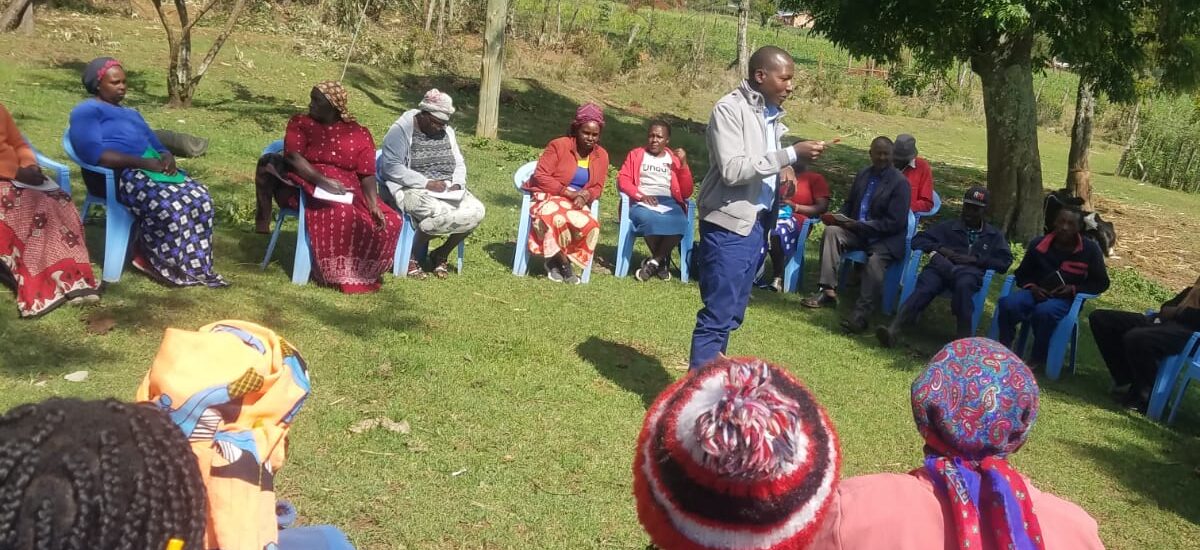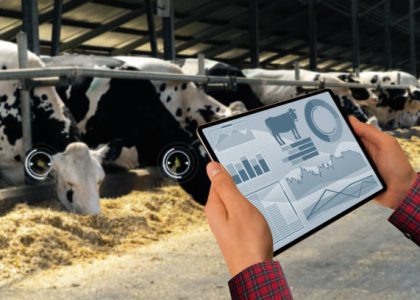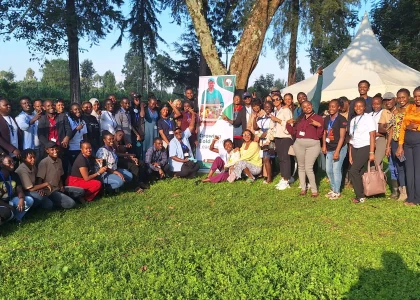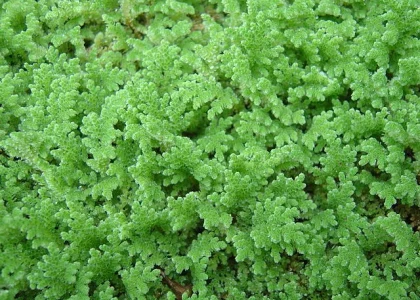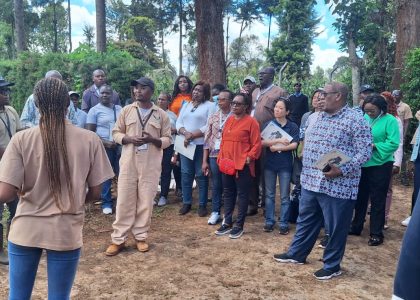What is agricultural extension and advisory?
Extension education in agriculture entails disseminating critical information and knowledge to multiple parties. Agricultural extension and advisory supports a systematic flow of information from researchers, scientists, educators, and scholars to established and upcoming farmers. Agriculture is a primary source of revenue for individuals residing in rural settings. Although farmers may possess resources and inputs to implement various agricultural projects, they have limited access to information, knowledge, and skills on the most appropriate systems and techniques for production, processing, marketing, storage, and maintenance. For this reason, extension personnel bridge the gap between farmers and knowledge to foster production and profit margins in diverse agricultural enterprises.
Farmers attending an extension forum in Nyandarua county
Agricultural extension and advisory at Wing Farm
Agricultural extension and advisory are core activities and objectives at Wing Farm. While transferring information to millions of farmers across the country seems extensive, we have devised holistic approaches to identifying and interacting with farmers to meet various agricultural-based needs. A typical question from farmers on our social media platforms is how we facilitate and conduct extension activities for interested agricultural groups. The answer to this question is quite simple. The entire idea revolves around locating farmers’ needs correlating with our objectives. The next step entails clustering the value chain actors into groups to increase the ease of training. A while ago, extension officers offered services using a door-to-door model. Based on this perception, you can imagine the number of times an officer will have to relay specific information to each household of a particular community. However, an increase in the Kenyan population over the decades has encouraged the integration of modern procedures, fostering the dissemination of information to a larger group and in a shorter period.
Wing Farm’s extension officers interacting with farmers in Nyandarua county
The role of agricultural extension and advisory in livestock production
Extension and advisory unfold through multiple value chains in the livestock production sector, including dairy, poultry, fish, sheep, goats, and camels. Such entities guide farmers on the most appropriate projects based on their resources and capabilities. For example, farmers interested in poultry and dairy form a group of 15 to 25 individuals to promote ease of training. In turn, extension officers relay information, skills, and knowledge concerning:
- dairy and poultry breeds
- breeding
- fodder establishment and managements
- disease prevention and control
- fodder harvesting and preservation
- feed formulation
- feeds and feeding
- milk quality
- milk processing
- Egg production and storage
- value addition
- waste management
- marketing of products and other feasible subjects
Wing Farm’s extension Volunteer training farmers on poultry disease prevention and management
How agricultural extension and advisory ends poverty and hunger in Kenya
So far, we have a consensus on the agricultural extension and advisory in promoting food production and security and suppressing hunger and poverty. The transfer of information, knowledge, and skills to farmers enhances production. As a result, individuals can effortlessly produce food for consumption and preservation throughout the year by integrating holistic techniques of climate-smart agriculture. Farmers can also produce products for sale in local, regional, and international markets. Currently, agriculture is a source of income and livelihood for individuals living in rural and urban settlements. Such activities minimize the poverty levels and the rate of crime in the country. Similarly, a well-fed nation is healthy and productive. Wing Farm has a vibrant Projects Committee implementing various agricultural extension services in Kenya. The activities have motivated farmers to replace outdated farming methods with sustainable agricultural techniques to promote food production, green employment, and minimize societal hunger and poverty. For further contributions, queries, and feedback concerning the agricultural extension and advisory, contact our experts through our social media pages; Twitter, Instagram, Facebook, and LinkedIn.


